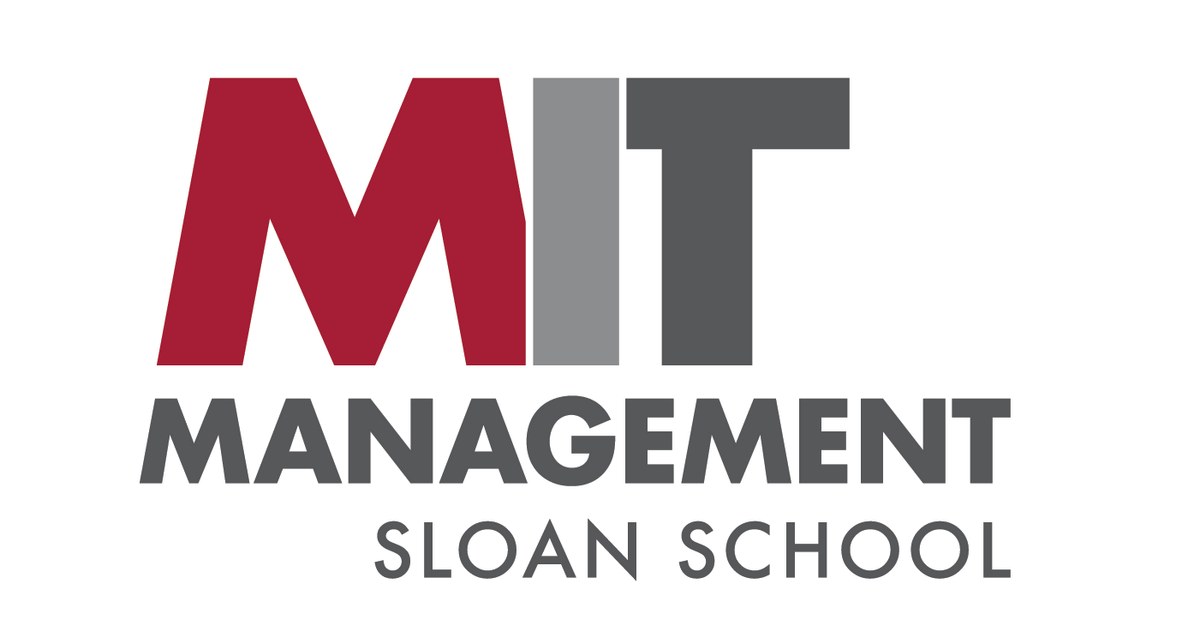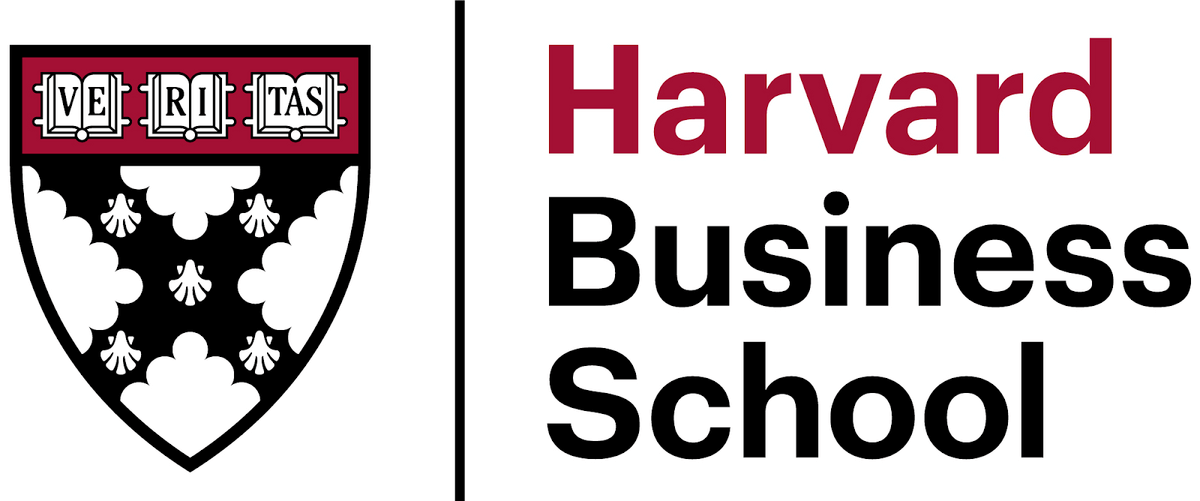An MBA gives you valuable business know-how and credibility. Additionally, this impressive credential may increase the chance of employers noticing your resume. There’s no shortage of careers for MBA graduates. Hello, job interviews!
Of course, earning an MBA also gives you new skills and knowledge, besides improving your existing skills like money management, communication, critical thinking, and leadership.
Getting your MBA puts you on the path toward your dream career. But we think the best jobs for MBA grads meet one vital criterion: they are lucrative.
So, what are the highest-paying jobs MBA graduates can get?
Keep reading for our list of the highest-paying MBA jobs, including average salaries, job growth, and educational requirements!
The 13 Highest-Paying MBA Jobs
Let’s look at a quick overview of the highest-paying, post-MBA jobs:
| The Best-Paying MBA Jobs | MBA Major | Average Annual Salary |
| Management Analyst | Business Analytics | $87,660 |
| Operations Research Analyst | Business Analytics | $86,200 |
| Marketing Manager | Marketing | $142,170 |
| Senior Product Manager | Marketing | $130,321 |
| Medical and Health Services Manager | Health Care Administration | $104,280 |
| Financial Manager | Finance | $134,180 |
| Chief Financial Officer | Finance | $131,710 |
| Sales Manager | International Business | $132,290 |
| Risk Manager | International Business | $91,733 |
| Human Resources Manager | Corporate Strategy | $121,220 |
| Top Executive | Corporate Strategy | $107,680 |
| Computer and Information Systems Manager | Information Technology | $151,150 |
| Vice-President of Information Technology | Information Technology | $154,262 |
The 13 Highest-Paying Jobs for MBA Grads
Let’s take a look at the highest-paying jobs for MBA graduates. We’ve organized them by major and listed the average yearly salary, projected job growth, and educational requirements.
1. Management Analyst
Major: Business Analytics
Average Yearly Salary: $87,660
Job Growth to 2030: 14%, around double the average
Educational Requirements:
- Most employers require a bachelor’s degree in social sciences, engineering, business, and other related fields.
- Some employers prefer an MBA or master’s in business analytics.
- Licensure is not required but is sometimes preferred.
Management analysts, also called management consultants, analyze financial information and other data to find the strengths and weaknesses of a company and start strategizing accordingly. They also interview personnel and conduct on-site observations to identify and solve problems they might find.
Management consultants often recommend ways to improve the efficiency of the company they work for. They develop solutions to increase efficiency, possibly enhancing their employers’ bottom line.
2. Operations Research Analyst
Major: Business Analytics
Average Yearly Salary: $86,200
Job Growth to 2030: 25%, a few times the average rate
Educational Requirements:
- Entry-level positions might not encompass jobs that require an MBA. In fact, they often require just a bachelor’s degree. However, employers may still require a master’s degree for higher positions.
Operations research analysts handle many aspects of an organization. They help managers allocate business resources, set prices, develop production schedules, manage supply chains, etc. They may also help companies figure out the most efficient ways to do things by streamlining processes, potentially improving profitability.
Operations research analysts use advanced analytical and mathematical methods such as databases and software to help them accomplish their responsibilities.
Major: Marketing
Average Yearly Salary: $142,170
Job Growth to 2030: 10%, slightly above average
Educational Requirements:
- Most need a bachelor’s degree in a business, communications, or marketing-related field to get started in this career.
- An internship is valuable and can increase your chances of getting noticed.
- Master’s degrees like an MBA or a master’s in marketing are beneficial but optional.
Marketing managers estimate demand, profitable markets, audience interest, and competition for a brand’s products or services.
These professionals work with public relations, sales, and even product development personnel to create a marketable product and strategize its publicity. For example, a marketing manager may monitor current trends to find high-demand products or services the company might consider developing. They also create marketing plans for these products.
4. Senior Product Manager
Major: Marketing
Average Yearly Salary: $130,321
Job Growth to 2030: 17%, more than double the average
Educational Requirements:
- A bachelor’s degree is typically required, and, in some cases, a master’s such as an MBA or master’s in engineering.
- The role may also require industry-specific certifications such as AIPMM, PMP, ACAMS, APICS, or SVPG.
A Senior Product Manager takes the lead with product strategy and product development to drive business growth and achieve the organization’s goals. Other job duties include:
- Drive pricing strategy and manage ACT pricing
- Present products at demos and industry events
- Recommend strategy and policy based on the latest legislation, codes, and trade group agreements
- Work closely with RBMs and the L&D team to ensure tools are implemented correctly
5. Medical and Health Services Managers
Major: Health Care Administration
Average Yearly Salary: $104,280
Job Growth to 2030: 32%, around triple the average
Educational Requirements:
- Professionals who enter this field must have a minimum of a bachelor’s degree in a healthcare-related area.
- Many employers prefer potential hires have master’s degrees. It’s one of the best jobs for MBA grads, provided you studied a healthcare-related track and have some experience.
Professionals in this position may also be known as healthcare administrators and executives.
Healthcare executives plan and direct the operations of healthcare and medical service facilities. They act as administrators for facilities like hospitals, clinics, medical practices, and even nursing homes (for which they may need a license).
Professionals in this field must stay up-to-date on the latest advances in healthcare technology, laws, and regulations to help ensure the quality and compliance of their managed facility.
6. Financial Managers
Major: Finance
Average Yearly Salary: $134,180
Job Growth to 2030: 17%, more than double the average
Educational Requirements:
- To work as a financial manager, you will need a bachelor’s degree and five or more years of experience in another business-related or finance-related occupation, such as an accountant or financial analyst.
- Many finance employers typically reward candidates for MBAs, making this one of the best jobs with an MBA.
One of the highest paying MBA jobs you can get is as a financial manager. This particular profession is also one of the hottest and fastest-growing of the lot.
Financial managers work in investment firms, corporations, banks, and insurance companies. They are responsible for the financial health of their employer’s organization, so they monitor finances and ensure legal compliance.
Financial managers prepare and present financial statements, forecasts, and more. They also supervise employees who handle finances and help management make financial decisions to benefit the company.
7. Chief Financial Officer
Major: Finance
Average Yearly Salary: $131,710
Job Growth to 2030: 17%, more than double the average
Educational Requirements:
- Almost all Chief Financial Officers (CFOs) have at least a bachelor’s degree.
- Many employers look for a master’s, associate’s, or doctorate when appointing their CFO, making this one of the most common careers for MBA graduates.
A CFO is responsible for all of the financial aspects of a corporation or organization. In practice, this may involve compiling financial reports, developing financial strategies, protecting the organization’s long-term financial goals, and pursuing direct investment activities.
A CFO may work in a range of industries, including finance, investment, and insurance. Along with at least a bachelor’s degree, you’ll need at least five years of relevant industry experience, and high-level skills in accounting, financial management, analysis, and leadership to secure a CFO role. This role almost always offers competitive pay, so it’s one of the best jobs you can get with an MBA.
8. Sales Manager
Major: International Business
Average Yearly Salary: $132,290
Job Growth to 2030: 7%, around average
Educational Requirements:
- The minimum requirement for this position may often be a bachelor’s degree, but many employers only require a high school diploma.
- It is common for employers to look for actual sales experience (1-5 years) over a degree.
- Larger companies and corporations may ask for an MBA.
One of the top-paying MBA jobs, sales managers direct sales teams. They determine profitability and set sales goals to help increase profit. Sales managers also assign quotas and sales territories and monitor consumer preferences to help them develop sales strategies like special discounts and promotions.
These professionals analyze performance metrics and help develop solutions and devise training programs to help sales personnel succeed. They help prepare budgets and stay within them by approving expenditures.
Sales managers may also help resolve customer complaints about service and sales.
9. Risk Manager
Major: International Business
Average Yearly Salary: $91,733
Job Growth to 2030: 17%, much higher than average
Educational Requirements:
- Around half of all Risk Manager roles list a bachelor’s degree as a basic requirement.
- Approximately a quarter of positions call for a master’s degree, while just 2% demand a doctorate.
Risk management has become increasingly important in recent years, and is predicted to continue this trajectory. A risk manager’s primary responsibility is to identify and analyze relevant risks, and develop risk management controls and contingency plans.
To work as a risk manager, along with certain qualifications, you’ll need to demonstrate certain key skills. The most important skills include analysis, communication, IT, IS, and financial services skills, as well as technical knowledge such as COBIT, COSO, and ISO 27001.
10. Human Resources Manager
Major: Corporate Strategy
Average Yearly Salary: $121,220
Job Growth to 2030: 9%, around average
Educational Requirements:
- Many employers prefer bachelor’s degrees in human resources, business, communications, and psychology.
- Some openings require master’s degrees in human resources or labor relations. Some may even require an MBA, even though this may not come to mind when considering jobs for MBA graduates.
- Certification is voluntary but can improve your career.
HR managers serve as a link between a company’s management and its employees. They oversee everything from recruiting to training. They create and implement employee benefits plans. HR managers also act as conflict mediators and direct disciplinary action if necessary.
In some cases, they act as consultants who advise other managers on HR-related issues like sexual harassment.
11. Top Executive
Major: Corporate Strategy
Average Yearly Salary: $107,680
Job Growth to 2030: 8%, around average
Educational Requirements:
- Employers require a bachelor’s or master’s degree in an area of study closely related to their field.
- The public sector requires public administration, law, or business administration concentrations.
- Top executives in large corporations often have MBAs.
- Some employers want their CEO to be a certified public accountant.
Top executives essentially run a company by planning and implementing business policies and strategies that help an organization meet its goals. They oversee and direct a company’s budgetary and financial activities.
These executives also analyze performance metrics and consult with other high-level executives to plan their steps moving forward.
Top executives include C-level executives like CEOs, CFOs, and CTOs.
12. Computer and Information Systems Managers
Major: Information Technology
Average Yearly Salary: $151,150
Job Growth to 2030: 11%, slightly above average
Educational Requirements:
- Companies often require a bachelor’s degree in computer science or information science alongside work experience in the field.
- Many employers require an MBA or a related master’s degree.
Computer and information systems managers are also known as IT managers or IT project managers. They handle any computer-related business activities, help determine IT goals and implement computer systems and upgrades to meet them.
IT managers stay up-to-date with technology and ensure that a business’ security is adequate to handle threats. They recommend possible upgrades to management and implement installations, updates, or hardware and software upgrades at the company. IT managers often manage other IT personnel at a company.
13. Vice-President (VP) of Information Technology (IT)
Major: Information Technology
Average Yearly Salary: $154,262
Job Growth to 2030: 11%, slightly above average
Educational Requirements:
- Some VP of IT roles only require a bachelor’s degree.
- A significant proportion list a master’s or associate’s degree as a minimum prerequisite.
A VP of IT is one of the highest-paying jobs for MBA graduates, a senior leadership position that oversees all tech aspects of an organization.
This generally includes overseeing IT systems, which encompasses design, development, and implementation. The VP of IT also usually creates and implements information strategies and policies. Finally, IT VPs lead cybersecurity plans.
What Are The Top 5 Universities for MBA Degrees?
Stanford University Graduate School of Business

Tuition: $119,964
Acceptance Rate: 7.1%
Financial Aid: Here
Stanford University’s GSB has a distinguished, award-winning faculty, including two John Bates Clark recipients and three Nobel Prize winners.
The Stanford Graduate School of Business MBA program is regularly voted the best in the US, so it’s no wonder it’s essentially the hardest to get into. It’s a two-year full-time program that prepares students for real-world situations, equipping them for handling problems during their careers. Students must also go through the Global Experience Program, a required component of the program, immersing them in various industries and cultures.
Related: How to Get Into Stanford: The Ultimate Guide
University of Pennsylvania – The Wharton School

Cost: $115,464
Acceptance Rate: 18%
Financial Aid: Here
The Wharton School offers a 20-month full-time MBA program which includes a three-month internship. The program requires attendance at the Philadelphia Campus, although students may apply to spend a semester at the San Francisco campus.
Wharton offers a global and cross-cultural experience in its consulting practicums, modular courses, and immersion programs. Students may also opt to earn a dual degree if they wish.
MIT Sloan School of Management

Cost: $117,998
Acceptance Rate: 13.8%
Financial Aid: Here
MIT’s Sloan School of Management offers two full-time MBA programs. The first is their flagship MBA, a residential program lasting two full academic years. The second is their immersive Sloan Fellows MBA program, a year-long transformational program designed for mid-career professionals looking to advance their positions.
Expert faculty members conduct the programs and facilitate hands-on, collaborative projects for students to deepen their knowledge. Students can specialize in different tracks, such as entrepreneurship and innovation, finance, and enterprise management.
Although the high costs may be prohibitive, Sloan automatically considers incoming students for scholarships and fellowships, awarded separately from admission. There are also other fellowships available, but students must apply.
Harvard Business School

Cost: $111,542
Acceptance Rate: 9% in 2020
Harvard Business School’s MBA program is quite selective, only allowing 9% of applicants in each year. The school’s famed MBA program is a two-year-long residential study designed to prepare its students for leadership roles on a global scale.
The program features immersive practical learning in global strategy and intelligence, allowing students to be ready to face global challenges. Dual-degree options are also available.
One of the best advantages of studying at the HBS is the alumni support and network students gain during and after graduating.
Related: How to Get Into Harvard: The Ultimate Guide
Columbia Business School

Cost: $118,777
Acceptance Rate: 16%
Financial Aid: Here
Columbia Business School designed its MBA program to prepare students to build, manage, and lead companies while remaining aware of how business decisions can affect society.
The two-year residential program allows concentrations like entrepreneurship, accounting, healthcare and pharmaceutical management, marketing, and finance. Dual degrees are also available.
Do You Need an MBA?
Many jobs do not require an MBA, so you don’t necessarily need one. However, n MBA will increase your chance of scoring a lucrative role.
This list of the best MBA jobs contains just a few jobs you can pursue after graduation. Your new degree might even benefit you in other industries in the future!
Interested in learning more about MBAs? Check the Reviews and Prices on the Cheapest Online MBA Programs
Frequently Asked Questions
What Jobs Can MBA Graduates Do?
MBA graduates go into business, healthcare, IT, and marketing. More and more MBA graduates have also been going into politics.
Which MBA Gives the Highest Salary?
Stanford Graduate School of Business alumni make an average salary of $150,000. The program is frequently voted best in the US and top worldwide. However, getting into this program is challenging, considering its 7.1% acceptance rate.
Which MBA is Best for CEOs?
A general MBA is sufficient to climb through the ranks and become CEO.
In 2019, Forbes conducted a top 100 CEO study where they found out that 54% of the top 100 CEOs hold a graduate degree. Among them, only 59% earned an MBA.
What is the Salary of an MBA Fresher?
A recent survey shows that employers are considering paying their new MBA hires an average starting salary of $115,000, much higher than the $65,000 average starting salary considered for bachelor’s degree holders. However, salaries vary depending on the industry.
Which MBA is Most in Demand?
According to the US Bureau of Labor Statistics, one of the most in-demand MBA jobs is medical and health services manager. The growth rate for this occupation is around 32%, over quadruple the national average. This means that one of the most in-demand MBA concentrations right now is healthcare administration.
Where Do Most MBA Graduates Work?
MBA graduates (especially those with work friends) work in industries where leadership, problem-solving, communication, and risk management skills are in-demand. They often work in business, banking and finance, product management, marketing, consulting, human resources, and healthcare management.
Many MBA graduates may also choose to go into business for themselves. Entrepreneurship is a common outcome of MBA degrees.
Related reading:
Chriselle has been a passionate professional content writer for over 10 years. She writes educational content for The Grad Cafe, Productivity Spot, The College Monk, and other digital publications. When she isn't busy writing, she spends her time streaming video games and learning new skills.











